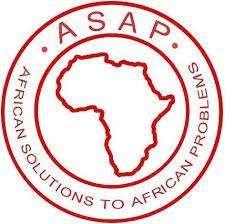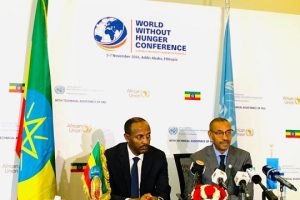
BY DANIEL ALEMAYEHU
Ethiopia was wallowing in the quagmire of two years of conflict that broke out in its northern part. However, any mediation efforts or calls for a peaceful resolution of the devastating war failed to yield a result until the African Union stepped in to broker a peace deal between the warring parties.
In the course of the conflict, the federal government insisted that any kind of peace agreement should come from the continental bloc. On different occasions, the incumbent also made clear its belief that African solutions need African problems. On November 2, the Federal Government of Ethiopia and the Tigray People’s Liberation Front (TPLF) inked Cessation of Hostilities Agreement (CoHA) in Pretoria, South Africa under the auspicious of the African Union. The peace deal incorporates agreements including the disarmament of TTPLF combatants, withdrawal of foreign forces, unimpeded humanitarian access, resumption of essential services, and implementation of transitional justice.
Prior to the Pretoria peace deal, almost all of the peace agreements held in Africa were negotiated or arbitrated by other international organizations around the world. However, the Government of Ethiopia has been in a firm position to be brokered by the African Union as the nation strongly believes that Africans have plenty of ways to resolve their own problems with indigenous mechanisms. Time has witnessed that the AU- brokered peace deal has brought tangible results and the stakeholders have taken steps that support the full implementation of the peace deal.
After the Pretoria peace accord, the Government of Ethiopia and TPLF further continued their agreement in two different rounds of meetings by sending their military officials to Nairobi, Kenya for discussing the implementation of the agreement. Those moves have shown the commitment of the federal government and TPLF regarding the implementation and practicality of the peace accord.
During the past few weeks, the incumbent has kept its promises to ensure unfettered humanitarian assistance which was confirmed by many officials and international organizations. Besides, the government has tried its best to restore basic services to the Tigray state. Government delegations and the African Union special envoy have also paid a visit to Mekele, Tigray regional capital demonstrating the federal government’s unwavering resolve to the full effectuation of the peace deal.
Just a week before, the Federal Government delegation led by the speaker of the House of Peoples’ Representatives Tagesse Chafo visited Tigray in order to evaluate whether the peace accord is being implemented.
With the implementation of the peace deal going smoothly, the international community is praising the AU and Ethiopia for their commitment and wisdom in making the deal a reality. The continental bloc is credited for its mediation role while Ethiopia received a tap in the back for its readiness and prowess to end the conflict peacefully. Ethiopia’s peace deal in this regard can be taken as a benchmark to resolve other conflicts in the continent. Lately, the African Union has said that the Pretoria peace deal will set the best example for the rest of African nations.
Ambassador Bankole Adeoye, Commissioner for Political Affairs, Peace, and Security of the African Union Commission said that the peace agreement depicts the best example for the rest of African countries and members of the African Union. This particular step of resolving African problems with African solutions will be presented as the best experience at the next African Union Summit in Addis Ababa.
Conferring with Deputy Prime Minister and Foreign Minister of Ethiopia, Demeke Mekonnen, Commissioner Bankole Adeoye also appreciated the Federal Government’s effort for its unwavering support for the African Union. He also praised both sides for the actions taken regarding the implementation of the peace agreement.
In their discussion, Demeke stressed that the peace deal can be considered the best proof of Africa’s potential of resolving its problems. Particularly, the Pretoria peace accord is producing better results, according to local media report. Demeke also said that conditions in the Tigray Region are getting better and better regarding the restoration of basic services and unfettered humanitarian aid. He also affirms the government’s commitment to supporting the implementation of the agreement.
The AU-brokered peace deal is not only valued for bringing the warring parties to the table but it is also praised for being successful in its implementation. At least that is what recent visits to Tigray testified. Be that it may, the Special Envoy of the African Union, Olusegun Obasanjo coupled with former President of Kenya, Uhuru Kenyatta paid a visit to Mekelle to attest whether the peace accord is implemented in the right way and as it is scheduled. The visitors confirmed that the federal government and TPLF have acted according to the agreement. Humanitarian assistance and the restoration of basic services are being provided to Tigray Region.
The Special Envoy Obasanjo admitted that both sides should be thanked for their commitment to implementing the peace agreement. He also mentioned that the provision of unrestricted humanitarian assistance, resumption of basic services, and establishment the lasting peace in the northern part of the country are stated in the agreement. Accordingly, both parties have shown their best effort for the implementation of the peace agreement.
Likewise, Kenya’s former President Uhuru Kenyatta on his part reaffirmed that all corridors of the country are open for humanitarian supplies and basic services are resumed. Kenyatta disclosed that the implementation of the peace agreement is a testimony to the possibility of resolving African problems with African solutions. He further added, “The leaders deserve praise for this result, and we will continue to strengthen our cooperation.”
In a similar vein, Justice Minister Gedion Timotheos further assured that the incumbent is implementing everything according to the promises and preconditions stated in the peace agreement. Senior TPLF leader, Getachew Reda has also shared the above-mentioned idea of the commitment of both parties in relation to bringing the peace agreement into reality.
To show further applicability of the peace deal, the Federal Government of Ethiopia and TPLF along with the African Union have established a Monitoring Verification and Compliance Mission Team under the guidance of the African Union. The team is responsible to supervise, monitor, verify, and enforce the peace agreement between the parties. The team will monitor both the civil and military agreements. It incorporates three members namely Maj.-Gen Radina Stephen from Kenya who is the head of the monitoring and verification team, Colonel Rufai Umar Mairiga from Nigeria, and Colonel Teffo Sekole from South Africa.
The peace accord and the part taken by the African Union to broker a deal shows that Africa is ready to take its own responsibility for any action in the continent without any interference from a third party. The Ethiopian government and TPLF have been resolute to metalize the landmark agreement.
The actors involved in this peace deal have been extending their involvement from bringing the bodies around the table to establishing a monitoring team that assesses the process of the implementation. In this regard, Africa sends a clear message to the rest of the world that its institutions can sort things out on their own. The peace accord is a textbook example to picture that continent of Africa has the potential to solve its problems in its own ways.
The Ethiopian Herald January 3/2023




